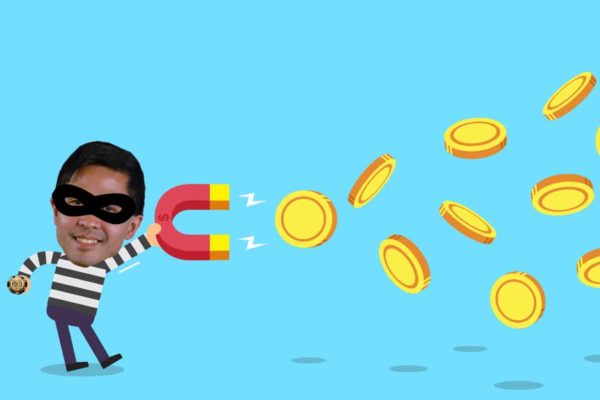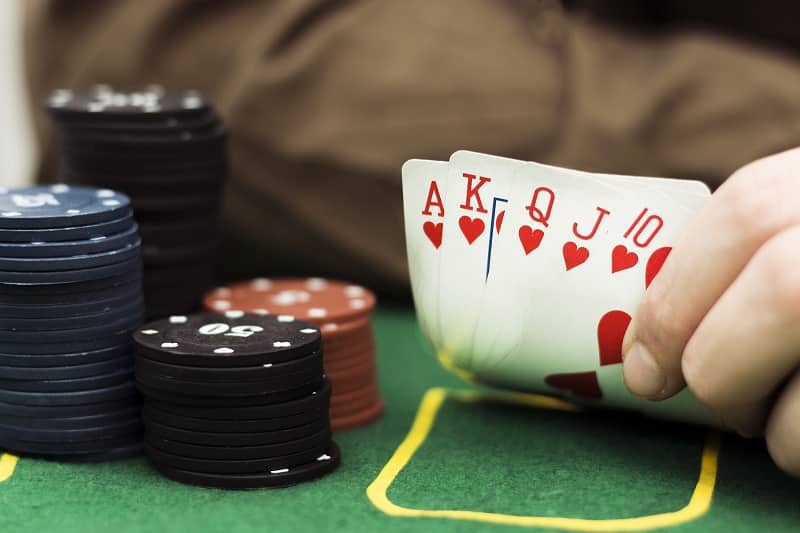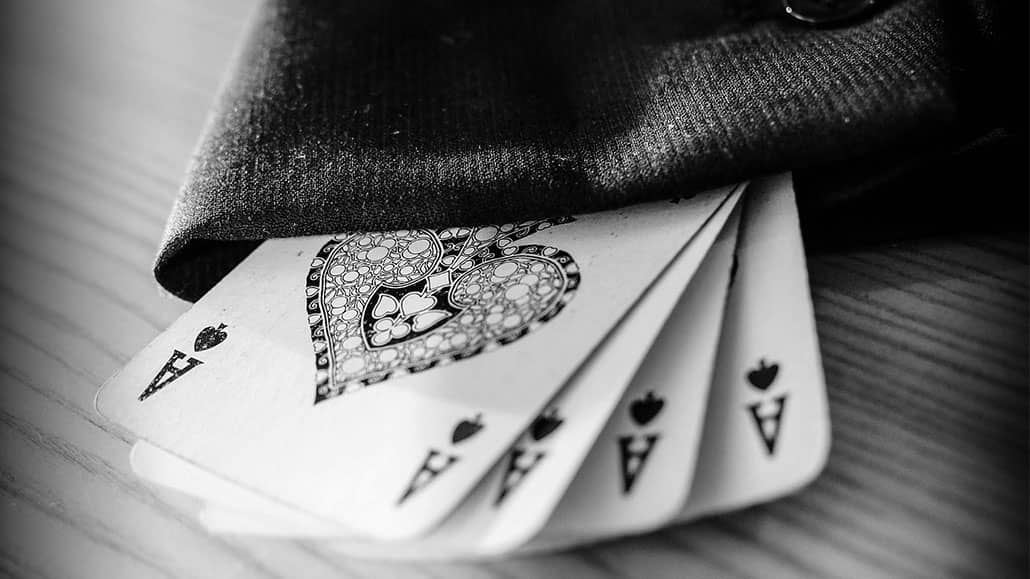Poker Angle Shooting Explained
Posted By admin On 06/04/22- Angle Shooting Angle shooting is a controversial part of poker. While not quite cheating, in some cases, it is essentially finding ways of exploiting ambiguous or weak areas of the rules in order to gain an advantage over other players. This is more than just pushing rules to their limits – it is travelling to the outer edges of fair play.
- Angle shooting is when a player pretends to make a mistake or do something they know is wrong to trick the other player. Talking in poker is not angle shooting, I can say whatever I want at the table, it may be bad etiquette but not angle shooting.
- Angle shooting is when someone manipulates the rules or takes advantage of a loophole to try and trick you into making a mistake. In other words, it’s “legal” cheating. It’s considered dirty, unethical, and if you are an angle shooter, you’re a sh.t bag.
- The specific tactics—the ‘angles‘—are almost universally looked down upon in the professional poker community, not just because they’re a way of cheating, but because shooting angles has an effect on the long-term health of poker more generally.
16 Oct
Angle shooting in poker refers to the practice of using various underhanded or unfair methods in order to take advantage of an inexperienced opponent. Such behaviour may appear to be unethical, but as long as it does not actually break any rules, angle shooting cannot strictly be considered cheating.
Poker pro Doug Lee has amassed over $1.3 million in live tournament earnings in a decade-long career that includes two WSOP circuit championships.
The first of those titles came in 2005 in a $10,200 buy-in event at the Rio Las Vegas Poker Festival that resulted in Lee's largest cash of his career --$695,970. However, that career includes some questionable tactics at the poker tables over the years, the latest allegation centered around possible angle shooting during a $565 buy-in, $500,000 guaranteed tournament in the PHamous Poker Series at Planet Hollywood.
The charges were levied by fellow poker pro Jimmy Fricke, whose live tourney resume shows more than $1.6 million in lifetime cashes. Fricke has been cashing in tournaments almost as long as Lee, with a 2nd place finish in the 2007 Aussie Millions Poker Championship Main Event good for $795,279 his largest score to date.

/cdn.vox-cdn.com/uploads/chorus_asset/file/22121245/casino_royale_movie_screencaps.com_11918.jpg)
'All-in, two million'
The angle shooting incident in question occurred at the blind level of 30,000/60,000 when an UTG player shoved all-in for about 600K in chips. The table's big stack called the all-in bet, leading to Lee making an announcement that he was “all-in, two million.”
The big stack asked Lee if his chip total was indeed two million, Lee replied in the affirmative, which prompted the big stack to fold his hand. Lee's big slick beat the pocket fives of UTG, allowing Lee to scoop a huge pot --more than 1.2 million in chips.
However, Lee didn't actually have two million in chips. His total stack was apparently less than 1.5 million. Lee seemingly misrepresented his chip count hoping to prompt the big stack to fold, an apparent angle shoot that found success.

I’m right next to him, he clearly only has like 1.35-1.4m,' tweeted Fricke. 'He has 7 40 stacks of 5k chips. I say something as they’re shipping the chips to him and he called me a fat internet loser. Very witty sir. Floors do nothing for the massive angle or the insults after.”
2 + 2 posters chime in
The incident prompted a thread on 2 + 2 that resulted in a debate over whether Lee's action was an angle shoot, or whether it was big stack's responsibility to confirm the actual chip count. Big stack failed to ask for confirmation from the dealer, taking Lee's word for it that his chips totaled two million.
As was alluded to in the thread, it is out of the ordinary for a player to announce an all-in followed by his chip total. Lee being an experienced pro, it appears his intent was to deceive.
The posters who side with Fricke and claim Lee was angle shooting point to Lee's intent of misrepresenting his chip total. Other posters were of the mind that big stack erred in confirming Lee's actual chip count.
This was really really bad tonight, guys,' Fricke posted on 2 + 2. 'He (Lee) stole thousands of dollars in equity from people at the table, myself included. He’s a total scumbag *******. This was just straight up cheating.”
Other posters piped in with stories of Lee's reputation for pulling such tactics, suggesting that someone known for questionable conduct on the felt should not be taken at his word. Fricke also called out the tournament directors for standing pat when Lee threw a number of insults at Fricke for bringing up the possible angle shoot when Fricke was not involved in the hand.
Poker Bonus Offers
- $400
- $500
- €200
- £470
- $600
- $600
- $200
- $600
- €1000
- £230
- £100
- £450
- $600
- £150
- $500
- $500
- $500

Angle shooting in poker refers to the practice of using various underhanded or unfair methods in order to take advantage of an inexperienced opponent. Such behaviour may appear to be unethical, but as long as it does not actually break any rules, angle shooting cannot strictly be considered cheating. A simple example would be peeking at a player’s hole cards when he/she fails to cover them up properly, but there are many more advanced forms which are more malicious and marginally legal at best.
Among the many forms of angle shooting is the “incomplete call,” which takes advantage of a rule used in many poker rooms that states an insufficient bet must be treated as no bet. An angle shooter will purposefully “call” a bet or raise by pushing forward fewer chips than are required, without saying a word, hoping the opponent will turn over his/her cards without checking to see if the pot is right.
If the angle shooter has a winning hand, he/she will quickly rake in the pot. But if the hand is a loser, the angle shooter can claim the call was incomplete, that she/he did not really intend to call, and then retrieve whatever amount was put forward as un-wagered.
Along these same lines, the use of ambiguous hand gestures can be “reinterpreted” by the angle shooter. What looked like a “check” can be claimed as a “bet” after others check, or a “call” can be reinterpreted as a “raise” if it seems beneficial to the angle shooter’s purposes. Showing one’s cards, for example, might be thought of as folding, but an angle shooter may judge a player’s reaction and then continue to play on.
In all of the above examples, the angle shooter has been careful not to say anything about the action that is taken. Quite often such silence is a tip-off that a player is attempting to gain an unfair advantage. Extra caution should be used when facing any opponent that fails to clearly indicate exactly what he/she is doing in play.
Another type of angle shooting involves an opposite strategy, using words to fake a hand or outwit a less experienced player. An example would be, when playing Texas Hold’em,” the angle shooter declares joyfully, out of turn, that the River card has just made his/her hand—“That’s the flush!” or “Inside straight!” or something similar. The hope is that others will believe it and toss in their hands. To guard against this, make sure that speaking or playing out of turn is against the rules in the game and draw immediate attention to any infraction.
In an attempt to escape from a bad situation, an angle shooter might deliberately spill a drink on the cards, feign a sudden medical emergency, or otherwise physically disrupt the game. Such angle shooting is not entirely limited to live games, either. Online players may attempt to get out of bad situation by disconnecting their computers.
Other actions involve how chips are used at the table. Following a big win, an angle shooter might remove chips from the table and pocket them, hoping to make his/her position appear weaker than it is. This is called “ratholing,” and it is against the rules in most poker rooms, though not all.
Along the same lines, an angle shooter who is winning may cash in at a ring game, then reenter the table with a smaller stack—an action known as “going south.” Again, removing chips from the table may prohibit reentry at some tables, but not all. Online, this can become a frequent problem, as winners “short stack” their positions by jumping in and out of play. On the other hand, poker rooms with long waiting lists are virtually immune to such tactics, but it is every player’s personal responsibility to know what rules pertain.
It is also important to remember that almost all poker players angle shoot to some degree. It is part of the game to use the rules to one’s own benefit. Even professionals have been known to angle shoot each other in tournament play, tabling a losing hand with bravado in hopes that the opponent will muck a winner or calling the clock on someone to get him/her to fold or make a bad choice. Those who know the rules well are in the best position to use them to their full advantage, and it still isn’t cheating, just angle shooting.
Published on: 04/10/2010
Related Articles
Different Poker GamesPoker Etiquette
Poker Terminology
Bluffing in Poker
Antes, Blinds, Chips and Limits Explained
Checking, Betting, Calling, Raising and Folding Explained
Introduction to Omaha Poker
Introduction to Seven-Card Stud
How to Use the Continuation Bet
Using Pot Odds in Poker
What is Angle Shooting?
 Determine the Winning Hand
Determine the Winning HandPoker Temperament and How to Manage It
Using Poker Chat
Poker Angle Shooting Explained Targets
Poker Angle Shooting Explained Drills
How to Play Caribbean StudHow to Play Three-Card Poker